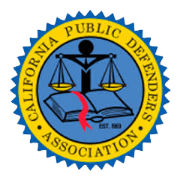Restraining Orders in California: Expert Legal Representation from RP Defense Law, APC
When it comes to restraining orders, having the right attorney by your side can make all the difference. Whether you’re seeking protection as a petitioner or defending yourself as a respondent, the experienced legal team at RP Defense Law, APC is here to guide you through every step of the process. Restraining orders can significantly impact your personal, professional, and legal life, so choosing the right advocate is crucial.
We specialize in all types of restraining orders in California:
- Civil Harassment Restraining Orders (CHRO)
- Domestic Violence Restraining Orders (DVRO)
- Elder or Dependent Adult Abuse Restraining Orders (EARO)
Below, we’ll explore each type of restraining order in detail and explain how RP Defense Law, APC can help you achieve the best outcome.
Civil Harassment Restraining Orders (CHRO)
A Civil Harassment Restraining Order is designed to protect individuals who are being harassed, stalked, or threatened by someone with whom they do not have a close personal relationship. Unlike domestic violence restraining orders, these are commonly filed against coworkers, neighbors, or acquaintances.
Who Can File a CHRO?
You may qualify to file a CHRO if you are experiencing:
- Stalking or unwanted surveillance
- Harassment, including repeated unwanted contact or threats
- Credible threats of violence
What Can a CHRO Do?
A Civil Harassment Restraining Order can:
- Prohibit the harasser from contacting or approaching you
- Enforce physical distance from your home, workplace, or school
- Prevent further acts of harassment or threats
How We Help Petitioners
Filing for a CHRO involves navigating complex legal procedures and presenting clear evidence. At RP Defense Law, APC, we:
- Assess your case to determine eligibility
- Help you gather compelling evidence, such as texts, emails, or witness statements
- File your petition and represent you at the hearing
How We Help Respondents
If you’re served with a CHRO, it’s essential to act quickly. A restraining order can have serious legal and professional consequences, including affecting your reputation and employability. Our firm will:
- Review the claims against you
- Challenge false or exaggerated allegations
- Advocate for your rights in court
Domestic Violence Restraining Orders (DVRO)
A Domestic Violence Restraining Order provides protection for individuals in intimate or familial relationships who have experienced abuse. Abuse can include physical harm, emotional manipulation, coercion, or threats.
Who Can File a DVRO?
You may file a DVRO against:
- Current or former spouses or romantic partners
- Roommates or cohabitants
- Family members, including parents, siblings, or children
What Constitutes Domestic Violence?
Domestic violence is broadly defined in California and can include:
- Physical abuse or injury
- Verbal abuse, including threats of harm
- Emotional abuse, such as intimidation or isolation
- Stalking or harassment
What Can a DVRO Do?
A Domestic Violence Restraining Order can:
- Order the abuser to move out of your shared residence
- Prohibit all forms of contact, including calls, texts, and social media messages
- Award temporary custody or visitation orders if children are involved
How We Help Petitioners
Seeking protection from domestic violence requires careful preparation and compassionate support. Our attorneys:
- Work with you to document evidence of abuse
- File the necessary legal documents to request immediate protection
- Advocate for your safety and long-term well-being in court
How We Help Respondents
False accusations of domestic violence can have devastating consequences. If you’re facing a DVRO, we will:
- Examine the evidence to uncover inconsistencies or fabrications
- Present a strong defense to protect your rights
- Negotiate solutions, such as limited contact agreements, when appropriate
Elder or Dependent Adult Abuse Restraining Orders (EARO)
An Elder or Dependent Adult Abuse Restraining Order protects individuals aged 65 or older or dependent adults who are victims of physical, emotional, or financial abuse. These cases often involve caregivers, family members, or acquaintances who exploit or harm vulnerable individuals.
Who Can File an EARO?
This type of restraining order can be filed by:
- The elder or dependent adult experiencing abuse
- A conservator or legal guardian acting on their behalf
What Constitutes Abuse?
Abuse under an EARO can include:
- Physical harm or neglect
- Emotional manipulation or isolation
- Financial exploitation, such as theft or fraud
What Can an EARO Do?
An EARO can:
- Prevent the abuser from contacting or approaching the victim
- Order the return of stolen funds or property
- Restrict the abuser from acting in a caregiving or fiduciary capacity
How We Help Petitioners
Our firm understands the sensitivity of elder abuse cases. We:
- Work discreetly to protect the victim’s dignity
- Gather evidence, such as medical records or financial statements
- Pursue comprehensive legal protections in court
How We Help Respondents
Being accused of elder abuse is a serious matter. We will:
- Investigate the allegations thoroughly
- Challenge claims lacking merit or evidence
- Advocate for a fair and just resolution
Frequently Asked Questions (FAQs) About Restraining Orders
- What is the difference between a temporary and permanent restraining order? A temporary restraining order (TRO) lasts until the court hearing, usually 20-25 days. A permanent restraining order can last up to 5 years after the hearing.
- What happens if I violate a restraining order? Violating a restraining order can result in criminal charges, fines, and even jail time. Contact us immediately if you’re accused of a violation.
- How long does it take to get a restraining order? A TRO can be issued the same day or within 24 hours. Permanent orders require a hearing, typically scheduled within a few weeks.
- Can I modify or terminate a restraining order? Yes, either party can request a modification or termination by filing a motion with the court.
- Do I need an attorney to file or contest a restraining order? While not legally required, having an attorney greatly improves your chances of a favorable outcome.
- What evidence is needed for a restraining order? Evidence can include texts, emails, photos, medical records, witness statements, or police reports.
- Can a restraining order affect my custody rights? Yes, restraining orders can influence child custody and visitation decisions, especially in DVRO cases.
- Can I appeal a restraining order decision? Yes, you can appeal if you believe the court’s decision was legally incorrect.
- What should I do if I’m falsely accused? Gather all relevant evidence to refute the claims and contact an experienced attorney immediately.
- How much does it cost to file a restraining order? Filing fees vary, but domestic violence cases often have no fees. Legal representation costs depend on the complexity of your case.
Contact RP Defense Law, APC Today
At RP Defense Law, APC, we bring a wealth of experience and dedication to restraining order cases. Whether you’re filing for protection or defending yourself against allegations, our firm will work tirelessly to protect your rights. Call us now at 818.646.3443 or schedule your consultation online.
Take the first step toward resolution today.




